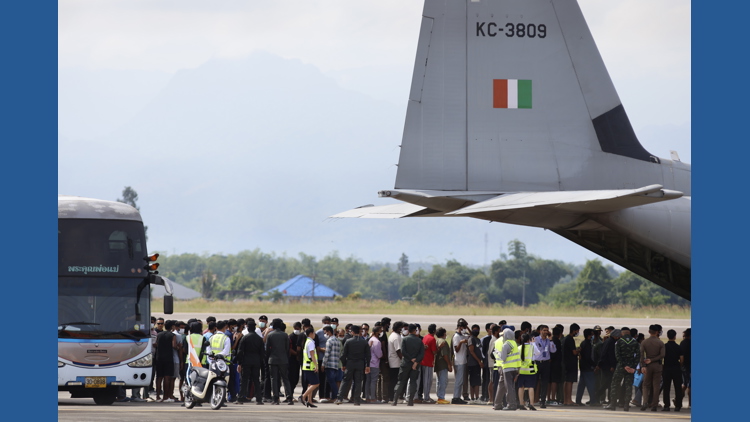URGENT UPDATE: Scam centers in Southeast Asia are proliferating despite intensified government crackdowns, with reports emerging of widespread forced labor and billions lost to fraud. Just last month, the Myanmar military announced a raid on the notorious KK Park along the Thailand border, aiming to dismantle one of the largest scam operations. However, civil society groups report that parts of the compound remain active, highlighting the complexity of eradicating this illegal industry.
Reports confirm that around 1,500 laborers, including individuals from India, China, the Philippines, and other nations, fled the complex during the military’s crackdown. Troops demolished several structures as part of the operation. Following the raid, the Indian air force began repatriating workers, with flights already transporting many home and more scheduled for next week.
These scam centers, often sprawling complexes in rural areas, exploit desperate workers lured by false promises of high-paying jobs. The United Nations estimates that at least 120,000 people in Myanmar and another 100,000 in Cambodia are trapped in such dire situations. Many victims have their passports confiscated, leaving them powerless to escape.
As these operations evolve, scammers increasingly target individuals across the globe, utilizing advanced technology and AI-powered translation tools. In March 2024, Philippine authorities raided a complex where workers were deceiving Chinese nationals into investing in crude oil futures.
Just last month, U.S. prosecutors unveiled charges against Chen Zhi, a Chinese-Cambodian businessman, for running a vast criminal network that scammed 250 Americans out of millions, with one victim losing $400,000 in cryptocurrency alone. In 2024, losses linked to Southeast Asia-based scams reached a staggering $10 billion, according to the U.S. Treasury Department.
Scammers employ a range of tactics, from investment frauds to online task scams, often creating a sense of urgency to manipulate victims into acting quickly. Despite ongoing government efforts to shut down these operations, activists warn that the core of the problem remains unsolved.
Jay Kritiya, coordinator of the Civil Society Network for Victim Assistance in Human Trafficking, stated, “If we only rescue the victims, and don’t arrest anybody… then there will be no point.” He emphasizes that without addressing the leadership of these transnational syndicates, the cycle of exploitation will continue.
As reports of new scam centers continue to surface, the urgency for international cooperation and comprehensive solutions grows. Authorities across the globe are racing against time to protect vulnerable populations and dismantle these criminal networks. The situation remains fluid, and further updates are anticipated as governments intensify their efforts to combat this pressing issue.







